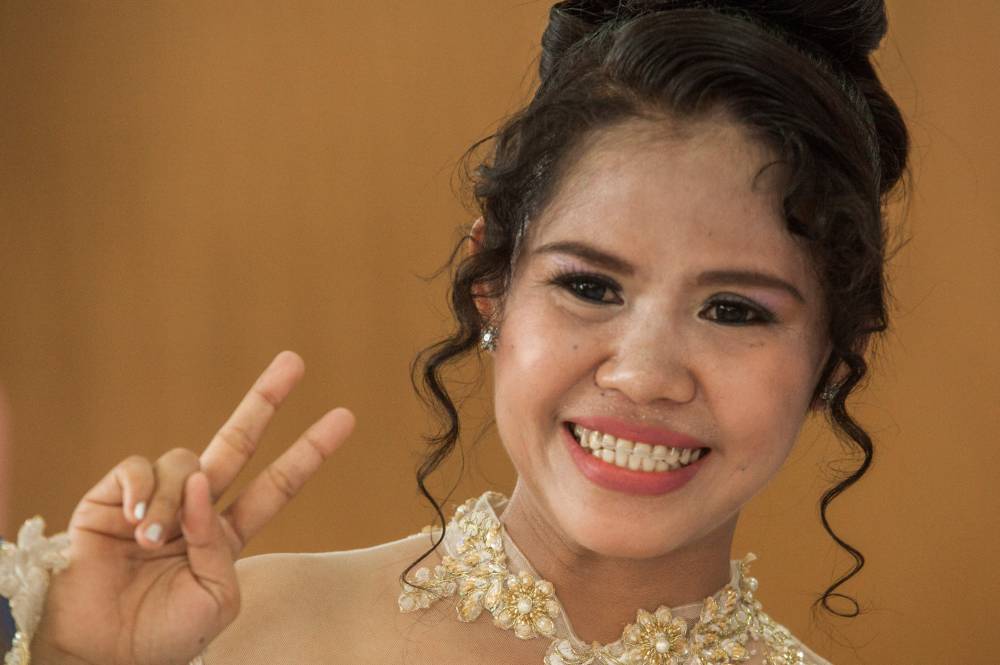DOJ: Veloso, recruiters must not be in same jail

The Department of Justice (DOJ) said it would ensure that Mary Jane Veloso would not be detained in the same facility as her recruiters once she is released from Indonesia and returned to the Philippines.
Justice Assistant Secretary Dominic Clavano said on Monday that discussions were ongoing on which facility Veloso would be taken to.
“It’s not final yet, but we are also very aware that some of the individuals she filed cases against for qualified human trafficking and illegal recruitment might be in the same facilities as her. So, we will ensure that she is not housed with the respondents in the cases where she serves as a witness,” Clavano said in an ambush interview.
The Bureau of Corrections (BuCor) previously said that Veloso would initially be brought to the Reception and Diagnostic Center of the Correctional Institution for Women in Mandaluyong City where she would be kept for about a month while undergoing medical assessment.
She may later choose which penal farm she wants to be detained in for her rehabilitation and reformation. These include BuCor facilities in Metro Manila, Palawan or Davao, BuCor Director General Gregorio Catapang Jr. said.
After spending 14 years on death row in Indonesia, Veloso will officially be coming home to the Philippines possibly before Christmas, the DOJ said last week.
Up to PH authorities
Justice Undersecretary Raul Vasquez went to Jakarta on Friday to sign a practical agreement with the Indonesia government on the transfer of Veloso, who was convicted on drug charges in Jakarta in 2010. Earlier, she was caught at the Yogyakarta airport with a suitcase containing 2.2 kilos of heroin but in her defense, Veloso said the suitcase was given to her by her recruiter and neighbor in Nueva Ecija, Cristina Sergio.
An appeal from the Philippine government led to the indefinite suspension of the Filipino domestic helper’s death sentence in 2015.
The Indonesian government did not impose any condition for Veloso’s return to the Philippines, Clavano said.
“So Mary Jane Veloso is simply being handed over to us, and it is up to us to decide whether or not additional steps should be taken,” he said.
Since President Marcos made the announcement about Veloso’s return to the country on Nov. 19, migrants’ rights advocacy group Migrante International and the National Union of Peoples’ Lawyers have called on the government to grant her executive clemency based on humanitarian grounds.
“The executive clemency procedure is generally simple. As long as there are justifiable grounds to grant executive clemency, it’s straightforward—it goes through the Board of Pardons and Parole for screening and then proceeds to the President for approval and signing,” Clavano said.
He noted, however, that the decision would ultimately be up to Mr. Marcos.
Crucial witness
According to the DOJ official, Veloso will serve as a “crucial witness” in the human trafficking and large-scale illegal recruitment cases she filed against her alleged recruiters and traffickers, Sergio and Julius Lacanilao, in a Nueva Ecija court.
In 2020, Lacanilao and Sergio were sentenced to life imprisonment by the Nueva Ecija Regional Trial Court Branch 88 for large-scale illegal recruitment that involved their other victims. It is not known where they are currently detained.
Since Veloso was deprived of liberty in Indonesia, Clavano said the government had very limited access to her.
“In fact, the judge even had to go to Indonesia to hear her testimony. Now, all access has been granted to the Philippine government for her to serve as a crucial witness in the illegal recruitment case against the respondents,” he said.
The Commission on Human Rights (CHR), meanwhile, urged the government to uphold the rules of the United Nations when it comes to the treatment of women detainees, specifically the “Bangkok Rules.”
The Bangkok Rules, which was adopted by the UN General Assembly in 2010, set the “global standards” when it comes to addressing the specific needs of women in detention.
For the CHR, following these standards ensure “that all efforts needed for constitutional actionable steps toward the reformation and possible reintegration of Veloso and the rest of [persons deprived of liberty] to mainstream society are actualized.” —WITH A REPORT FROM GILLIAN VILLANUEVA

















